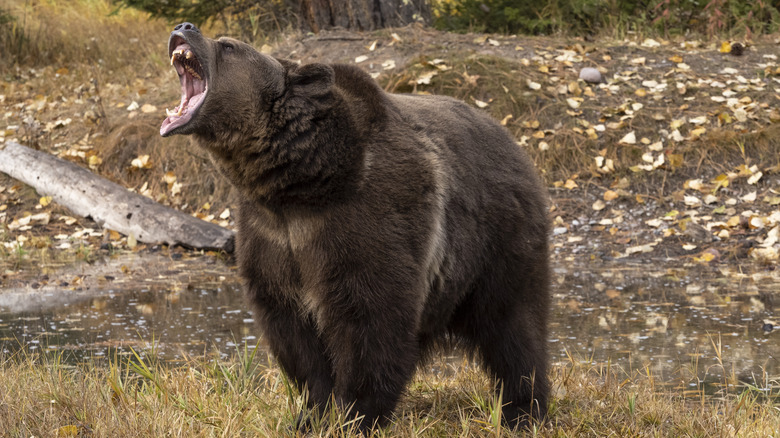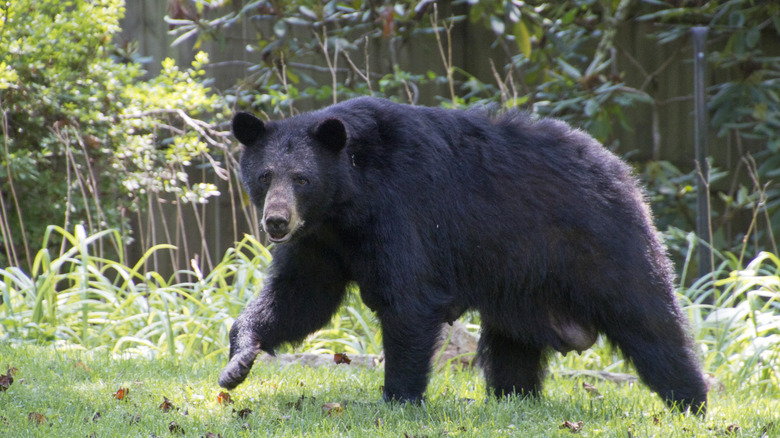Why Are Bear Attacks On The Rise? Here's What We Know
We may receive a commission on purchases made from links.
Encounters with bears are becoming far more common. According to Newsweek, bear encounters are up dramatically in 18 states in the U.S. Unfortunately, data shows that bear attacks are also increasing. These attacks include several fatalities, including the first fatal black bear attack in California. That attack, incidentally, took place in the victim's home, as reported by the San Francisco Chronicle. So, why are bear attacks on the rise?
For starters, North America is home to a few dangerous species of bears. Of those, both black bears and grizzlies are often found near not only campgrounds and trails, but also near homes throughout their range. Black bears are particularly notorious for this and will even nest in buildings on your homestead if given the opportunity. Grizzlies are not as commonly seen in close proximity to people, but will venture into campsites, campgrounds, and homes if an attractant such as food is located there.
While mistakes that attract bears to campsites and homes account for a number of these instances, in many ways, the increasing number is almost inevitable. The population of people in the U.S. has been steadily increasing, including in areas of known bear territory. At the same time, bear numbers are going up and their range has been expanding. Add to that a loss of bear habitat due to deforestation and wildfires and the reasons for the increase in bear attacks begin to become clear. However, given the unlikelihood of any of those conditions changing, what's even more important than why bear attacks are increasing is knowing how to keep yourself safe from being a bear attack victim.
Staying safe from bears at home and outdoors
As bear populations grow, there are thousands of bear-related incidents reported each year — and this isn't limited to remote outdoor adventures. "Bears are biologically driven to seek out the highest calorie food sources they can get while using as little energy as possible," notes Wildlife Manager Adrian Archuleta to Colorado Parks & Wildlife, highlighting the urgency to be prepared no matter where you are. One of the main ways to keep bears away from your home or campsite is eliminating any potential food source or scents that may attract bears. For your yard, get a bear-proof trash receptacle or modify your existing trash container with Trash Lock Ultimate Straps or similar product. When camping, it is critical to properly store your food and waste so as not to attract bears to your campsite.
For those residing in bear country, it is important to take steps to keep bears out of your home, as they can attempt to enter whether you are inside or not. This includes doing things such as adding reinforced doors, replacing lever style door handles, installing sturdy fences and gates, placing bars over windows, and keeping all exterior and garage doors closed and locked. Installing motion lights and trimming limbs and bushes can also be a deterrent to bears. If they do show up, use noise makers such as air horns to try and get them to leave. If they do not, call 9-1-1.
Anyone spending time in bear country as a resident or visitor should also be aware of what to do if attacked by a bear. Whether you are in your home, on the trail, or in camp, it is critical to identify what type of bear it is so you know how to properly respond. If attacked by a grizzly, you should play dead. If a black bear attacks, you should fight back.

